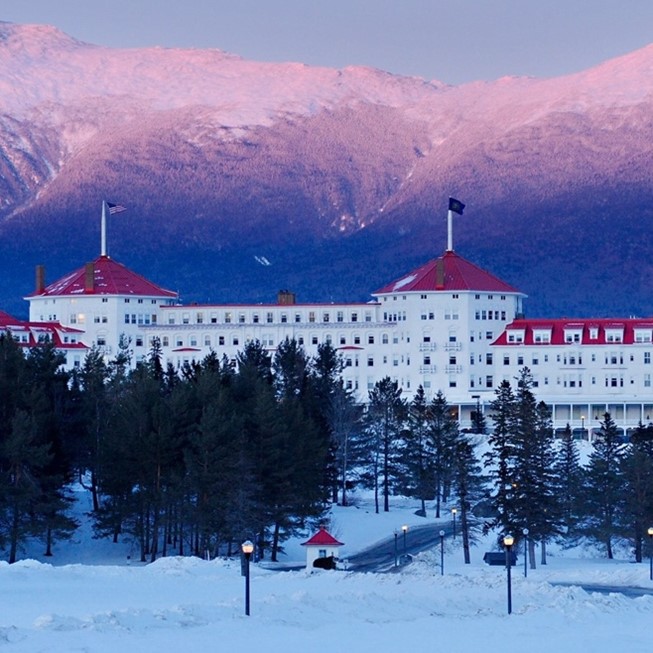The Russian-Ukrainian conflict has been raging for almost a year now and there is no sign of a return to peace. On the contrary, it could get bogged down in the coming months and cost the lives of thousands of additional souls. Because this war is the reflection of an economic system that is cracking, of the end of an era, the international community must think and organize the structure of tomorrow's economy so that negotiations can succeed.

Bretton Woods Conference, July 1944, Mount Washington Hotel, New Hampshire, USA.
One time it was in Venice, another in Amsterdam, the next day in London, but since 1945 the world's leading power has been located on the other side of the Atlantic, in Washington. A simple retrospection shows that these reigns are only temporary... and that their power is essentially exercised through their monetary and military power.
In this respect, and for several years now, indicators such as the gradual de-dollarization of many countries, the continued expansion of the US military budget, the spectre of a financial crisis and the emergence of new powers are signs that US imperialism is becoming somewhat fragile.
Putin's government, whose deep dream is to resurrect the Russian empire of yesteryear, is thus trying to destroy by force the American system (and more broadly the Western hegemony), which is playing in the defense of Ukraine the maintenance of its superpower.
But after more than eleven months of deadly conflict, Russia seems to have underestimated the cohesion of Western countries and their support for Ukraine, a country located at the gateway to Europe and whose fate is a major geostrategic issue. Today, Finland and Sweden are preparing to join NATO, the eurozone is expanding, and the Europe-US relationship has strengthened. China, the only great power capable of changing the destiny of the conflict, stands aside. The Middle Kingdom remains weakened by its economic model, similar to that of the USSR in the second half of the 20th century.
Russia is therefore partially isolated from the world, but is strengthening its trade with rising powers such as India and the Gulf States. This constitutes a growth relay for the Kremlin in the face of the various Western sanctions.
Thus, this accelerated mutation of the world economy teaches us that this war also and above all, like most others, brings together economic interests.
Negotiations between Ukraine and Russia would be likely to succeed if the international community organized a new, fairer and more balanced international economic system.
Creating a New International Economic System
In July 1944, a year before the end of the war, White's dollar system won out over Keynes' at the Bretton Woods conference. After a month of talks, the IMF and the IBRD (International Bank for Reconstruction and Development) were born.
At a time when geopolitical conflicts are intensifying, in an increasingly fragmented and multipolar world, Keynes' project deserves to be resurrected.
An assembly bringing together all the G20 countries, including Russia, should be held with this objective in mind.
The British economist advocated the creation of a single international currency - the bancor - which would be used for trade between countries.
For this project to succeed, an independent global central bank must be created. Its role would be to establish a fixed parity vis-à-vis national currencies. It would not take advantage of any state, and any country would be free to convert its national currency to the bancor whenever it wishes, according to the evolution of its foreign trade.
The establishment of this international currency would make it possible to pacify relations between nations and to put an end to monetary hegemony. Exchange rate fluctuations and foreign debt, the consequences of which are now well known, would cease. Countries would then regain their monetary sovereignty.
In addition to the creation of this single currency accompanied by a world bank, a permanent zero interest rate policy could be introduced. It would allow each state to borrow from its central bank without paying interest on its debts [1].
This new measure would put an end to the capitalization of interest on public debts, also known as the "snowball effect", which is the source of a significant part of the world money supply. In France, it is estimated that the public debt would only represent 30% of GDP (as opposed to nearly 113% today) if the government borrowed at 0% as of 1970.
Thus, the utopian race towards infinite growth, which is fed through the continuous expansion of debts (i.e. an advance on production), will eventually subside.
To avoid the defects of the system that has prevailed since the end of gold-dollar convertibility, however, this zero-rate money creation must be limited. Setting monetary creation according to the country's annual growth would solve this problem and thus balance this new system. But the calculation of this growth, currently measured by GDP, must be modified. Created during the interwar period, this imperfect and now obsolete indicator must necessarily take into account the major issues of this century. So that it is an indicator of economic well-being and not just of performance.
The four measures would be as follows:
- The creation of a single international currency
- The birth of an independent world central bank
- The introduction of permanent zero interest financing, with the central bank, for each country
- A new economic growth indicator
This summit would be an opportunity for the G20 countries to come together around an international economic project, more just and balanced, adapted to the needs of future generations. A consensus must be found for its initial objective to succeed: to put an end to the war in Ukraine and the Russian dictatorship's hold on Ukrainian territories. This presupposes that the West accepts that today's world has become multipolar, and that totalitarian regimes finally respect the sovereignty of peoples.
So that the world that is opening up is not a tragic reproduction of history, but a place where democratic values are the alpha and omega of living together.
Notes :
[1] The implementation of this measure is not very similar to the continuous decrease in rates in recent years thanks to the unconventional policy of central banks. Indeed, a zero-interest loan from the central bank does not require massive asset purchases on the markets, a source of inequality.
Reproduction, in whole or in part, is authorized as long as it includes all the text hyperlinks and a link back to the original source.
The information contained in this article is for information purposes only and does not constitute investment advice or a recommendation to buy or sell.

















